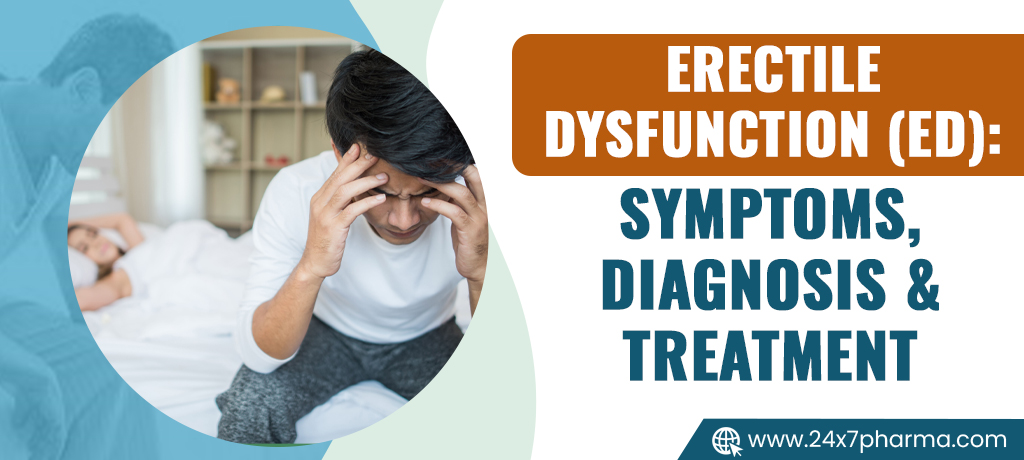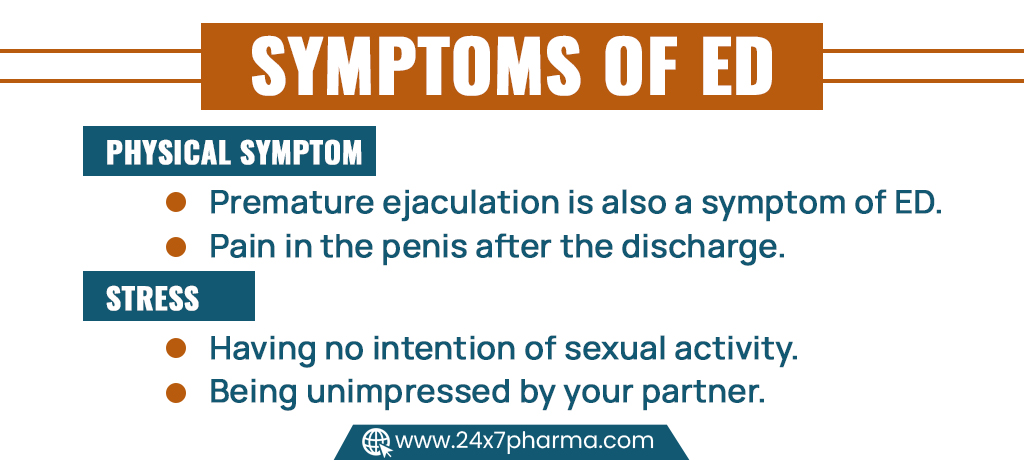What is Erectile Dysfunction?
Erectile Dysfunction (ED) refers to the chronic inability to achieve or maintain an erection firm enough for satisfactory sexual activity. While occasional difficulty with erections is common, persistent issues may point to more complex physical or psychological problems.
ED impacts both sexual performance and overall health. It’s often a multidimensional condition stemming from physical, psychological, or lifestyle-related factors—or a mix of all three. Addressing ED holistically can lead to more effective, personalized treatment outcomes.
Key Symptoms of Erectile Dysfunction
Common indicators of ED include:
- Trouble getting or maintaining an erection
- Premature ejaculation or delayed ejaculation
- Decreased libido or lack of sexual desire
- Increased anxiety or low self-esteem related to sexual activity
ED as a Predictor of Cardiovascular Disease
Research now confirms that ED can serve as an early indicator of cardiovascular problems. Because the arteries in the penis are smaller than those in the heart, symptoms of impaired blood flow often appear here first.
If you’re experiencing persistent ED, it could mean your heart health is at risk. Prioritizing vascular health may improve both sexual and cardiovascular outcomes.
Root Causes of ED in Younger and Older Men
ED can arise from different causes depending on age and health history.
In Younger Men:
- Psychological Factors: Stress, performance anxiety, depression
- Lifestyle Habits: Smoking, alcohol use, substance abuse, lack of exercise
- Hormonal Imbalances: Low testosterone, thyroid dysfunction
In Older Men:
- Cardiovascular Problems: High blood pressure, high cholesterol
- Nerve-Related Conditions: Stroke, spinal cord injuries, multiple sclerosis
- Chronic Health Issues: Type 2 diabetes, obesity, sleep disorders
- Prescription Medications: Antidepressants, antihypertensives, sedatives
Psychological Impact and Emotional Health
ED doesn’t just affect the body—it affects the mind and relationships. Many men with ED suffer in silence, leading to feelings of shame, rejection, or a loss of confidence.
Therapies like CBT, mindfulness practices, and couples counseling can address the emotional side of ED. These interventions aim to reduce anxiety and rebuild intimacy.
Diagnostic Methods for ED
Identifying the cause of ED involves a series of evaluations:
- Detailed Patient History: Focus on medical, sexual, and emotional health
- Physical Examination: Checks for hormonal issues or physical abnormalities
- Lab Tests: Assess testosterone levels, blood sugar, and lipid profile
- Ultrasound (Penile Doppler): Evaluates blood flow to the penis
- Nocturnal Penile Tumescence Test: Assesses spontaneous nighttime erections
Erectile Dysfunction Treatments
Recent advancements are shifting ED treatment beyond traditional pills. Here are top options:
1. Shockwave Therapy (Li-ESWT)
This non-invasive therapy uses low-intensity sound waves to promote new blood vessel growth and improve circulation in the penis.
2. Platelet-Rich Plasma (PRP) & Stem Cell Therapy
These regenerative therapies rejuvenate tissue and support nerve function. PRP injections, often known as the “P-Shot,” may help men with ED regain erectile function naturally.
3. Tailored Medication Plans
Custom combinations of PDE5 inhibitors like Viagra and Cialis, often in microdoses, are showing better results for men with comorbid conditions or severe ED.
Lifestyle Interventions with Lasting Impact
Making health-focused lifestyle changes can reverse mild to moderate ED.
- Regular Physical Activity: Improves blood flow, lowers blood pressure
- Healthy Diet: A Mediterranean-style diet enhances vascular health
- Weight Control: Obesity contributes to hormonal and circulatory problems
- Quitting Tobacco: Smoking damages blood vessels essential for erection
- Limit Alcohol: Excessive drinking can interfere with sexual performance
Partner Communication and Relationship Dynamics
Sexual health is a shared experience. Effective communication with your partner can reduce anxiety, build trust, and lead to better treatment outcomes.
- Initiate open, judgment-free discussions about ED
- Include your partner in treatment plans or doctor visits
- Consider relationship counseling to rebuild emotional and sexual intimac
When to See a Doctor
Don’t wait to seek help. Consult a healthcare provider if:
- You’ve had ED symptoms for more than 3 months
- You’re under 40 with signs of sexual dysfunction
- You suspect underlying health conditions like diabetes or low T
- You’re experiencing related symptoms like fatigue or low libido
Final Thoughts
Erectile Dysfunction is a health condition that affects both physical and emotional well-being. With the latest diagnostic tools, regenerative therapies, and lifestyle solutions, most cases of ED are treatable.
If you’re experiencing symptoms, don’t delay—early intervention can make a significant difference. Addressing the root cause can not only restore sexual function but improve overall quality of life.


